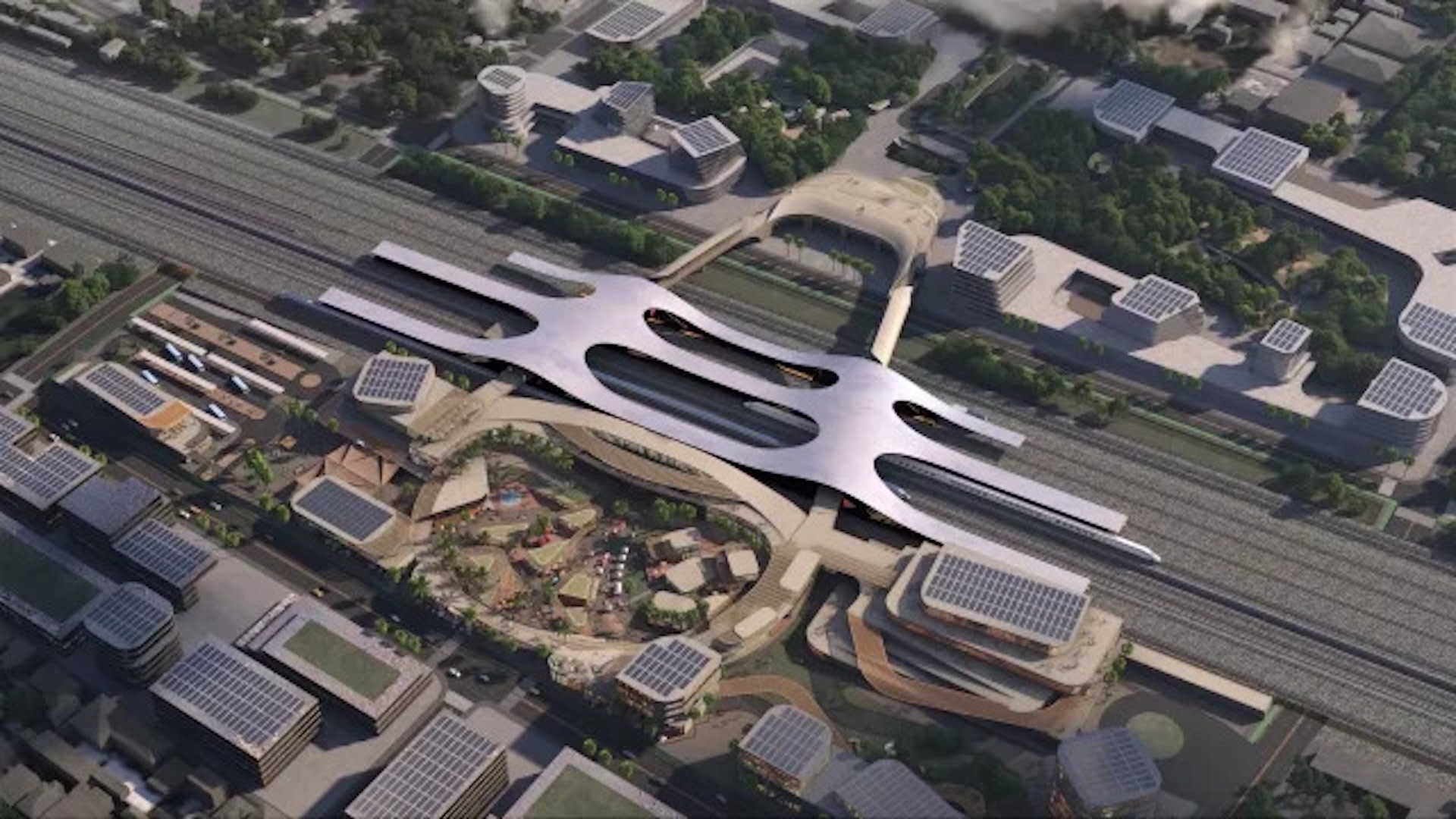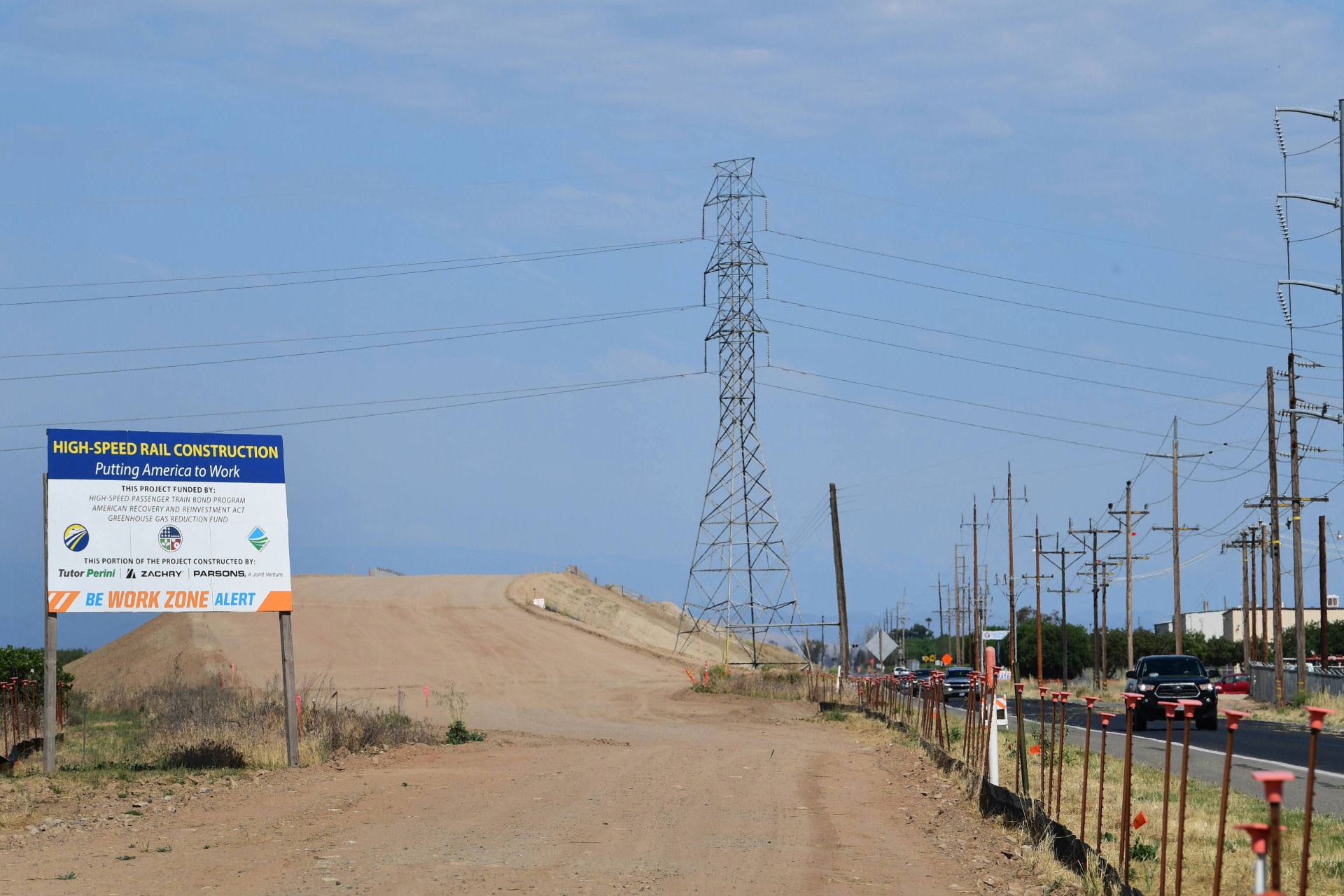High-speed rail provides consumers with fast, efficient, and often cheap transportation options. Not only is it more convenient for travelers, but high-speed rail also offers several environmental benefits — most notably, taking gas-guzzling cars off the roads and serving as a viable alternative to highly polluting and expensive air travel.
The U.S.'s rail system lags far behind other countries when it comes to both scale and speed, but strides are being made across the country to play catch-up.
Texas: Houston to Dallas

A 240-mile high-speed rail line is set to open in the early 2030s, connecting Houston and Dallas, Texas, with a travel time of just under 90 minutes. Amtrak and the Japanese government are discussing the use of the N700S Series Shinkansen train for the line, largely thanks to its flawless safety record.
The project will potentially remove 12,500 cars from Interstate 45 every day, greatly reducing harmful air pollution from gas vehicles and decreasing traffic.
California: Palmdale to Apple Valley

A new line backed by both state and private funding is set to connect Palmdale and Apple Valley, California. The High Desert Corridor High-Speed Rail Project will also eventually connect to the Brightline West line, which will run through Southern California to Las Vegas.
The main challenge right now is ensuring that the trains run efficiently and safely, even in the middle of a desert with very high heat and winds.
North Carolina and Virginia: Raleigh to Richmond

A new proposed rail line will take passengers from Raleigh, North Carolina, to Richmond, Virginia, in around two hours and 45 minutes, around the same time it would take to drive.
Existing rail lines make the trip in about three hours and 45 minutes, with the new line being slightly more direct and faster. Construction has already begun on the section of the high-speed rail from Raleigh to Wake Forest.
California: San Francisco to Los Angeles

The long-awaited high-speed rail from San Francisco to Los Angeles is finally approaching construction after submitting the "last key environmental document needed." Though there is still no timeline on when construction will begin, the Rail Authority is set to finalize all remaining documentation within the next year.
With the introduction of this line, a trip that normally takes six hours by car (or more, depending on traffic) would be cut down to under three hours.
Illinois and Missouri: Chicago to St. Louis

One Illinois congressman is calling for the construction of a high-speed rail line connecting Chicago, Illinois, and St. Louis, Missouri, which could cut the travel time between the cities in half.
Though there are no active projects entering construction, Representative Mike Quigley believes that the Midwest has a high potential for successful rail as they have several major cities within driving distance.
🗣️ Would you support a tax increase to pay for high-speed rail in your state?
🔘 Absolutely 👍
🔘 Probably 🤔
🔘 I don't know 🤷
🔘 No way 👎
🗳️ Click your choice to see results and speak your mind
Join our free newsletter for weekly updates on the latest innovations improving our lives and shaping our future, and don't miss this cool list of easy ways to help yourself while helping the planet.









